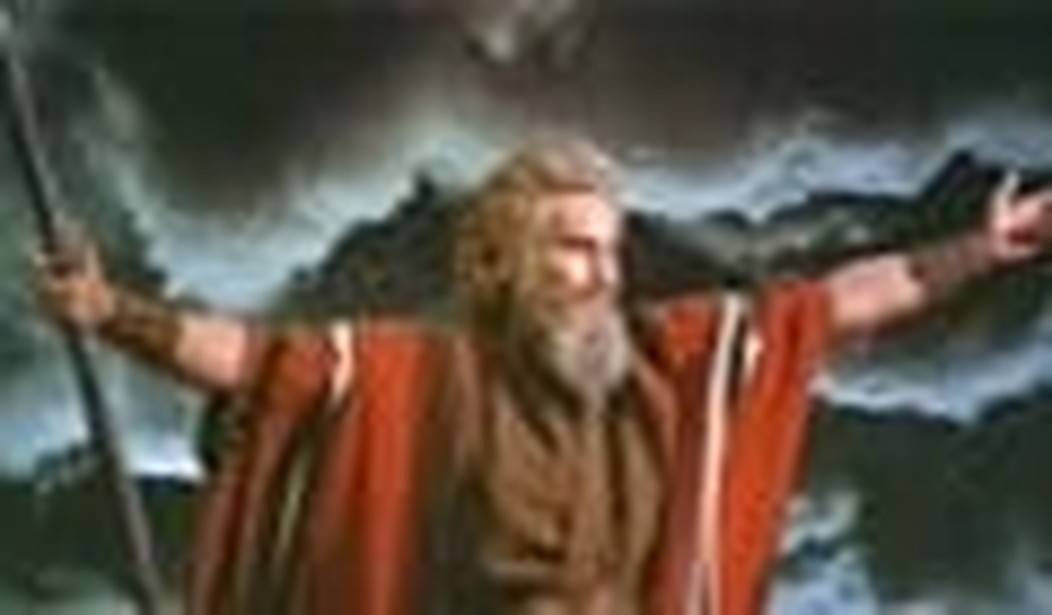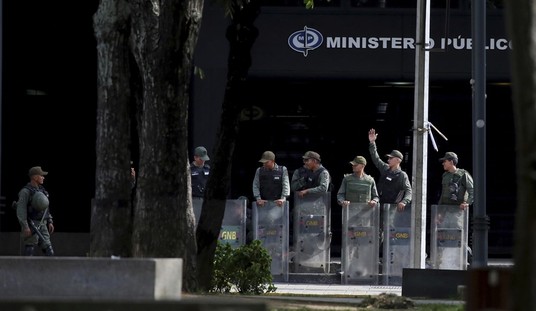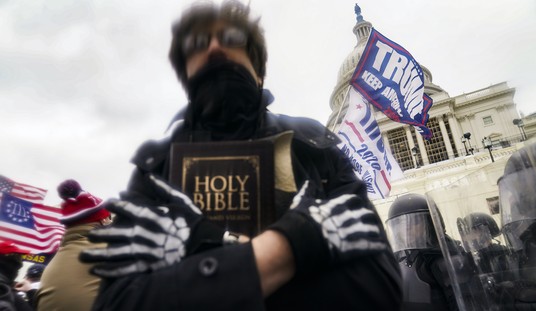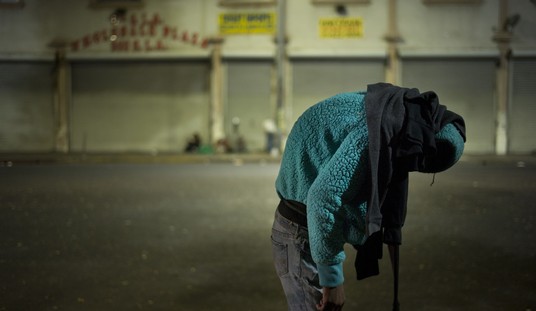Charlton Heston will not be remembered as one of the best actors who ever lived. But he is right up there with the greatest movie actors of all time.
If that sounds counterintuitive, forgive me. The fact is, film acting is, by and large, hugely dependent on others for the quality of an actor’s performance. It is why most Hollywood stars seek to control so many aspects of production when they finally achieve the clout to do so. A bad editing job can be death to a brilliant performance. A bad director can doom a performance from the outset. And few actors can take a bad script and make it work. Continuity, sound design, set decoration, and even the way the film is lit, shot, and filtered can spell the difference between an academy award and a critical disaster.
But Charlton Heston, who died yesterday at the age of 83, could overcome almost any of those drawbacks by the sheer force of his gigantic personality that filled up the big screen to overflowing, making his co-stars, extras and the film itself seem small by comparison. It wasn’t his intensity but it was. It wasn’t his physique, but it was. It wasn’t the tilt of his head, the granite jawed profile, the steely eyed glares he gave everyone from the Pharaoh of Egypt to a “damn dirty ape” but it was.
It was all of these things and something else. And if I could define that “something else,” and bottle it for sale, I would be a rich man indeed.
The mysterious, ineffable quality that made Heston such an overpowering presence on the big screen was shared by precious few actors in the history of Hollywood. Certainly John Wayne had “it.” Spencer Tracy, James Cagney, Clark Gable, and perhaps Paul Newman are among the few who could also could dominate a film by the power of their personality. (I would include Kate Hepburn, Bette Davis, and Joan Crawford in that august company for their performances in individual films but not as a rule for their careers. No reflection on them but on the way films were abysmally written for women at the time.)
But Heston’s screen presence was often augmented by the types of characters he portrayed placing his performance on a plane above any other actor in Hollywood. Consider some of the giants of history he has portrayed through the years. Among them:
1. Buffalo Bill (The Pony Express, 1953)
2. Andrew Jackson Twice (The President’s Lady, 1953 and The Buccaneer, 1958)
3. Moses (The Ten Commandments, 1956)
4. Rodrigo Díaz de Vivar (El Cid, 1961)
5. Michelangelo (The Agony and the Ecstasy, 1965)
6. John the Baptist (The Greatest Story Ever Told, 1965)
7. Charles “Chinese” Gordon (Khartoum, 1966)
8. Marc Antony (Julius Caesar, 1970)
9. Cardinal Richelieu – twice (The Three Musketeers, 1973 & The Four Musketeers, 1974)
Just one or two of these larger than life historical roles would make any actor’s career. Heston made a career out of playing such characters because whatever preconceived notions of these historical figures you may have entertained, his monumental screen presence forced the audience to accept him as the “real” character. No easy task, that. But Heston carried it off with a combination of jut-jawed intensity and an astonishing attention to detail born of his obsessive research into the historical characters he portrayed.
In addition to the historical roles, Heston was cast in films where a dominant personality was required to make the movie work. His turn as Judah Ben Hur garnered him an Oscar in spite of the fact that the spectacle of the film itself would have overwhelmed almost any other actor. Heston rose above the gigantic sets and the sweeping cinematography to dominate the film. The same could be said of his character Major Lewis in 55 Days at Peking. Set against the backdrop of the Chinese Boxer rebellion against western imperialism, Heston’s pitch perfect portrayal of a cynical, tough army officer faced with battling a people he didn’t understand in a cause he couldn’t fathom was at the same time forceful and sensitive.
Even in smaller films, Heston’s force couldn’t be contained. In The Naked Jungle, based on the classic short story by Carl Stephenson of a South American plantation owner battling an attack by hordes of red ants, Heston captured the character’s desperate, single minded battle against nature itself. And his victory over the ants – at the expense of his entire plantation except his home – was believable because perhaps only Charlton Heston could be seen as the one character who could defeat Mother Nature.
But it is perhaps his character Miguel ‘Mike’ Vargas in Orson Welles Touch of Evil that captured the essence of the actor in Heston better than any of his other roles. A hugely underrated film, Evil gave Heston an opportunity to stretch his character to explore themes of love and betrayal that his historical roles never allowed. Heston would later say that he learned more about acting as a result of Welles’ direction than from anyone else.
Heston’s personal life was marked by a combination of political advocacy and deep commitment to his family. His 64-year marriage to his wife Lydia was a testament to that commitment as well as his devotion to his two children.
His political advocacy generated controversy. Why this is so speaks more to our cultural divide today than it does to Heston’s political beliefs. He marched with Martin Luther King and was a staunch supporter of civil rights. He opposed McCarthyism and racial segregation. He spoke out against gay-bashing and opposed the Vietnam War, believing Nixon was a disaster as president.
He supported liberal Democrats early in his Hollywood career including Johnson and Kennedy. It appears that as long as Heston was doing what was expected of him as a Hollywood liberal, he could do no wrong.
But like many Democrats in the late 1970’s, Heston’s allegiances to both liberalism and the party began to weaken. Once he began campaigning for more conservative positions on issues like gun control, affirmative action, and national defense, the left turned on him with a vengeance. He didn’t formally change his party affiliation until 1987 but it was clear by the early Reagan years that Heston had abandoned the New Left and the Democrats.
But it was his stint as President of the National Rifle Association that garnered the most controversy. By 1998, gun owners felt themselves under siege. The NRA was becoming a pariah in Washington and the organization found themselves reaching out to Heston, who once supported gun control in the early 1970’s, to be the public face of the NRA. The move proved to be enormously popular with those supporting second amendment rights and Heston showed that he was more than capable of arguing their case in forum after forum.
The Columbine controversy, portrayed in Michael Moore’s “documentary” Bowling for Columbine, showed a much diminished Heston arguing that holding the NRA meeting in Denver a week after the tragedy was not insensitive. The fact that the people of Denver agreed for the most part didn’t stop gun control advocates from painting Heston as some kind of fanatic. Indeed, it was shortly after Moore’s propaganda film came out that Heston announced he was suffering from Ahlzeimers disease. Actor George Clooney joked about Heston’s condition while later saying that because of Heston’s presidency of the NRA, he deserved anything bad said about him. Heston responded by saying that Clooney had “no class.”
Politics aside, Heston’s legacy as one of Hollywood’s most iconic figures is assured as long as copies of Ben Hur and The Ten Commandments survive. There was no one like him before and it is doubtful there will be anyone like him again. Part of the reason for that is that film making and film stars have changed dramatically from the 1950’s and ‘60’s.
But it is equally apparent that Charlton Heston was an extraordinarily unique and dominating presence whenever the lights in the theater dimmed and the magic of movies took over our imaginations.
And that is where he will live forever.










Join the conversation as a VIP Member